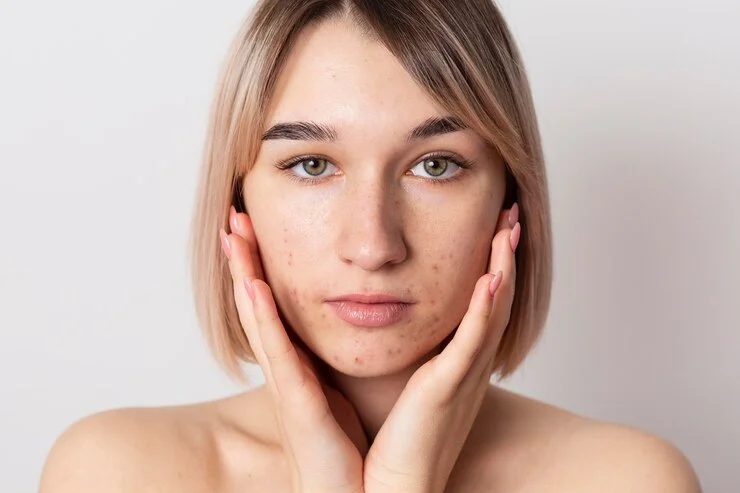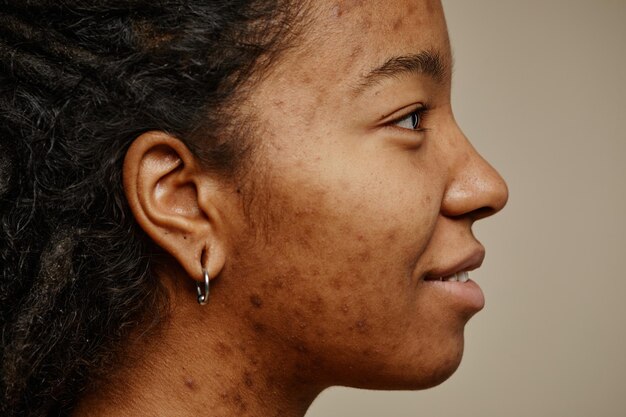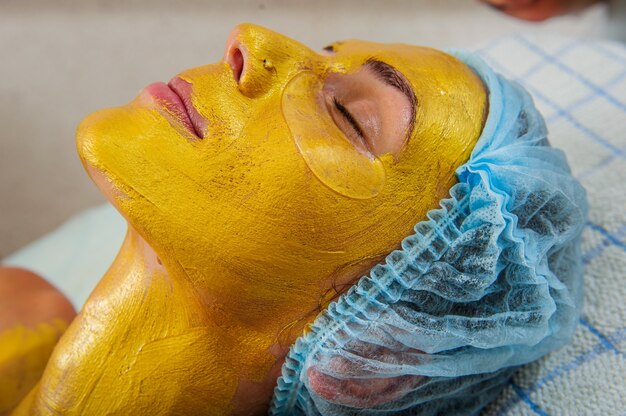आयुर्वेदिक डॉक्टर से प्रश्न पूछें और निःशुल्क या भुगतान मोड में अपनी चिंता की समस्या पर ऑनलाइन परामर्श प्राप्त करें। 2,000 से अधिक अनुभवी डॉक्टर हमारी साइट पर काम करते हैं और आपके प्रश्नों का इंतजार करते हैं और उपयोगकर्ताओं को उनकी स्वास्थ्य समस्याओं को हल करने में प्रतिदिन मदद करते हैं।
Understanding Skin Pigmentation Problems

Key Takeaways
- Skin pigmentation problems can be caused by factors such as sun exposure and hormonal changes, affecting skin tone and texture.
- Ayurveda offers a unique perspective on skin pigmentation, focusing on natural and holistic approaches to address these issues.
- Ayurvedic skincare tips emphasize daily routines and practices that promote healthy skin and help manage pigmentation.
- Natural remedies for pigmentation use easily accessible ingredients that can improve skin tone when integrated into regular skincare routines.
- Creating a holistic skincare routine involves combining Ayurvedic principles with natural remedies to maintain overall skin health.
Ever wondered why some people have uneven skin tones? The mystery of skin pigmentation can be traced back to a mix of genetics, sun exposure, and hormonal changes. These factors lead to an imbalance in melanin production, the pigment responsible for the color of our skin. Skin pigmentation problems can manifest as dark spots, patches, or even conditions like melasma.
In the quest for solutions, Ayurveda emerges as a natural and holistic approach. This ancient Indian science offers insights into balancing the body's elements to address skin concerns. It emphasizes using natural ingredients to restore skin’s natural glow. As we explore Ayurvedic skincare tips and natural pigmentation remedies, you’ll discover a world of possibilities for achieving even-toned skin. Keep reading to unlock the secrets of Ayurveda and learn how it can help with pigmentation issues.
स्वयं दवा न लें और प्रतीक्षा न करें। अभी डॉक्टर से चैट शुरू करें
Ayurveda's Take on Skin Pigmentation
Ayurveda, the ancient Indian science of life, offers unique insights into skin pigmentation problems. This holistic approach sees skin issues as a reflection of internal imbalances. According to Ayurveda, pigmentation can be caused by an imbalance in the doshas: Vata, Pitta, and Kapha. Each dosha represents unique elements and energies in the body.
-
Vata Imbalance: Often leads to dry and rough skin, which can exacerbate pigmentation issues. Incorporating moisturizing oils like sesame or almond can help restore balance.
-
Pitta Imbalance: This is linked to heat and inflammation, potentially causing red or brown patches. Cooling herbs like sandalwood and turmeric are recommended to soothe and calm the skin.
-
Kapha Imbalance: Can result in oily and thick skin that might darken over time. Lightening herbs such as neem and tulsi can help manage oil and pigmentation.
Ayurvedic remedies often include a blend of natural ingredients, dietary changes, and lifestyle adjustments. For instance, using a paste made from turmeric and milk is believed to lighten pigmentation naturally. Additionally, incorporating a balanced diet rich in fruits, vegetables, and whole grains supports overall skin health. This approach not only targets symptoms but aims to treat the root cause, promoting lasting results.
Ayurvedic Skincare Tips for Healthy Skin
Ayurveda, the ancient Indian science of life, offers a holistic approach to skincare. At its core, Ayurveda believes in balancing the body's natural elements to maintain health. When it comes to skin pigmentation problems, Ayurveda suggests that harmony in the body can lead to a glowing complexion.
One crucial Ayurvedic tip is to follow a routine that suits your skin type. In Ayurveda, skin types are categorized into Vata, Pitta, and Kapha. Understanding your skin type helps in choosing the right remedies and practices. For example, a Pitta skin type, prone to inflammation, might benefit from cooling ingredients like aloe vera or sandalwood.
Hydration plays a significant role in Ayurveda. Drinking ample water throughout the day helps in flushing out toxins. Additionally, including herbal teas like chamomile or mint can soothe the skin and keep it hydrated.
Diet is another pillar of Ayurvedic skincare. Eating fresh, seasonal fruits and vegetables supports skin health. Foods rich in antioxidants, like berries and leafy greens, can prevent pigmentation issues. Spices like turmeric and saffron are often recommended for their skin-brightening properties.
Regular oil massage, or Abhyanga, is a cherished Ayurvedic practice. Massaging the skin with warm sesame or coconut oil improves circulation and nourishes the skin. This practice can help reduce pigmentation and promote a smooth texture.
Incorporating natural remedies is vital. Face masks made from ingredients like chickpea flour, yogurt, and honey can exfoliate and brighten the skin. These natural solutions offer a gentle way to tackle pigmentation concerns.
"The great thing about Ayurveda is that its treatments always yield side benefits, not side effects."
- Shubhra Krishan
In essence, Ayurvedic skincare is about nurturing the skin with love and natural ingredients. By embracing these tips, you can support your journey to healthy, radiant skin.
Natural Remedies for Pigmentation
Dealing with skin pigmentation issues can be quite the challenge. Many people are turning to natural remedies, and it's no surprise why. According to a study published in the Journal of Herbal Medicine, about 60% of people prefer natural treatments over synthetic ones for skin conditions. This preference highlights a growing trend towards holistic skincare solutions.
Let's explore some of these remedies. Turmeric, for instance, is a popular choice. This bright yellow spice isn't just for cooking. It's known for its anti-inflammatory properties, which can help reduce pigmentation. Simply mix it with milk or honey to create a soothing face mask.
Aloe vera is another natural gem. It contains aloin, a compound that helps lighten skin and reduce dark spots. Applying fresh aloe vera gel directly onto the skin can be quite effective. It's gentle and suitable for most skin types.
Lemon juice, with its natural bleaching properties, is often used to lighten skin pigmentation. Be cautious, though! It's best to use it diluted, as it can be harsh on the skin. Mixing lemon juice with water or honey can make it safer to apply.
Sandalwood is an Ayurvedic favorite, known for its cooling properties. A paste made from sandalwood powder and rose water can be applied to pigmented areas to help soothe and lighten.
These remedies are simple, yet they pack a punch. They harness the power of nature to tackle pigmentation, offering a gentler, more traditional approach to skincare. Whether you choose turmeric, aloe vera, lemon juice, or sandalwood, these natural options provide a viable path towards achieving even skin tone.

Creating a Holistic Skincare Routine
Building a complete skincare routine is more than just picking the right products. It's about understanding your skin's needs and choosing practices that support your unique complexion. Whether you're dealing with pigmentation issues or just want healthier skin, Ayurveda offers a balanced approach.
Start by identifying your skin type. This helps in selecting ingredients that work best for you. For pigmentation problems, natural remedies like turmeric and aloe vera can be very effective. These ingredients not only help in reducing pigmentation but also nourish the skin deeply.
Incorporate ayurvedic skincare tips into your daily routine. Practices such as dry brushing and oil cleansing can enhance blood circulation and remove toxins. These methods are gentle yet effective, aligning with the principles of Ayurveda.
Don't forget to stay hydrated and maintain a balanced diet. What you consume affects your skin's health. Foods rich in antioxidants, like berries and leafy greens, can improve skin tone and overall appearance.
As you explore these practices, share your experiences with others. Comment on what works for you and join discussions that can offer new insights. If you found this information helpful, consider sharing it with friends who might benefit from a holistic skincare routine. Dive deeper into related articles to expand your knowledge and keep your skin glowing naturally.
FAQ For Skin Pigmentation
What are the main causes of skin pigmentation problems?
Skin pigmentation issues are often caused by factors such as sun exposure, hormonal changes, certain medications, and genetic predispositions. These factors can lead to an overproduction or uneven distribution of melanin, the pigment responsible for skin color.
How does Ayurveda view skin pigmentation issues?
Ayurveda perceives skin pigmentation problems as a result of imbalances in the body's doshas, particularly Pitta. It suggests that maintaining balance through lifestyle, diet, and herbal remedies can help manage pigmentation naturally.
What Ayurvedic skincare tips can help prevent pigmentation?
Incorporate daily practices such as using natural oils like coconut or almond oil for moisturizing, adopting a diet rich in fruits and vegetables, and practicing stress-reducing activities like yoga and meditation to support skin health and prevent pigmentation.
What are some natural remedies for skin pigmentation?
Natural remedies include using ingredients like turmeric, aloe vera, and sandalwood. These can be applied topically in masks or creams to help lighten pigmentation and improve the overall tone and texture of the skin.
How can I create a holistic skincare routine for pigmentation?
To create a holistic skincare routine, combine Ayurvedic principles with natural remedies. Cleanse the skin with gentle, natural cleansers, hydrate with herbal toners, and nourish with oils and masks. Consistency and balance are key to maintaining healthy skin.
Are there specific Ayurvedic herbs recommended for pigmentation?
Yes, herbs such as manjistha, neem, and licorice are often recommended in Ayurveda for their skin-healing properties. These herbs help in detoxifying the skin and reducing pigmentation when used in topical applications or consumed as supplements.
Can lifestyle changes impact skin pigmentation?
Absolutely. Lifestyle changes such as reducing stress, ensuring adequate hydration, following a balanced diet, and protecting the skin from excessive sun exposure can significantly impact and improve skin pigmentation over time.


